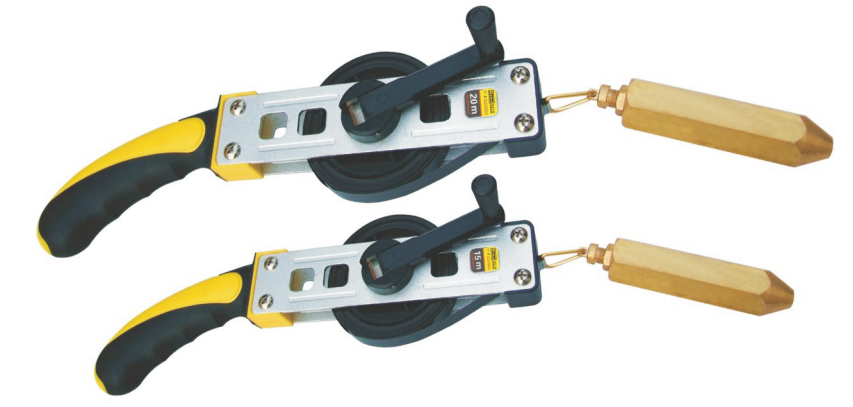Introduction
In industries such as petrochemicals, mining, natural gas, and refining, safety is always the top priority. Standard steel tools can generate sparks when subjected to friction or impact, which may ignite flammable gases or dust. To eliminate this risk, explosion-proof tools—also known as non-sparking tools, or spark-resistant tools—have become essential. Understanding the principles behind their design and their practical applications can help create a safer and more reliable working environment. Using non-sparking hand tools for hazardous workplaces is a proven way to minimize fire and explosion risks.
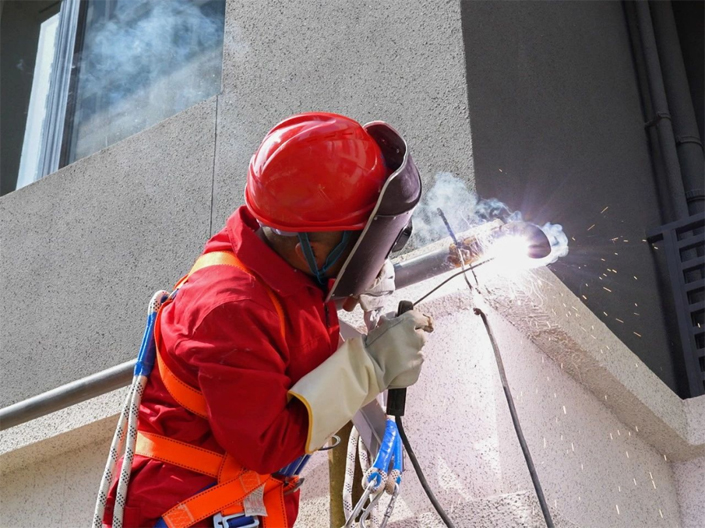
Image source: https://www.ifeng.com/
Core Design Principles of Explosion-Proof Tools
The primary function of explosion-proof tools is to prevent sparks during use. This is achieved through specialized materials and engineering methods:
Material Properties
· Copper Alloys as the Standard: Most explosion-proof tools are made from beryllium copper (BeCu) or aluminum bronze (AlCu). These alloys quickly absorb and dissipate frictional heat, preventing dangerous temperature spikes. Their softer texture allows for plastic deformation rather than creating metallic fragments that could ignite. This makes spark-resistant wrenches and pliers especially suitable for flammable environments.
· Spark-Free Advantage: Unlike steel tools, copper-based alloys contain no carbon. This eliminates the oxygen–iron–carbon reaction chain that can lead to spark formation.

Image source: Qingchen Metal Co., Ltd.
Energy Conversion Mechanism
When exposed to impact or friction, mechanical energy is converted into heat. Thanks to the high thermal conductivity of copper alloys, this heat is rapidly dispersed, preventing localized ignition sources. Using explosion-proof hand tools in flammable gas and dust environments ensures operational safety.
Explosion-Proof Certification
High-quality explosion-proof tools comply with rigorous national and international standards, such as GB/T 10686-2013. Key tests include:
· Drop Hammer Test: Tools are repeatedly struck with a 14 kg hammer from a height of 4 meters in a hydrogen-rich environment (21% concentration). No ignition occurs after 20 consecutive impacts.
· Friction Test: Confirms the absence of sparks under extreme working conditions. Certified spark-resistant tools for oil and gas industries provide peace of mind in high-risk scenarios.
Types and Performance of Non-Sparking Tools
By Material
1. Aluminum Bronze Tools
Produced from electrolytic copper with added aluminum and nickel, these tools are durable and suited for medium to low-risk environments, such as fuel stations and oil depots. They are a reliable choice for non-sparking wrenches and pliers in hazardous work zones.
2. Beryllium Copper Tools
Alloyed with beryllium, nickel, and other metals, these tools are non-magnetic and highly spark-resistant. They are ideal for high-risk hydrogen environments, including refineries and offshore drilling platforms. Although more expensive, beryllium copper hand tools for explosive atmospheres ensure maximum safety.
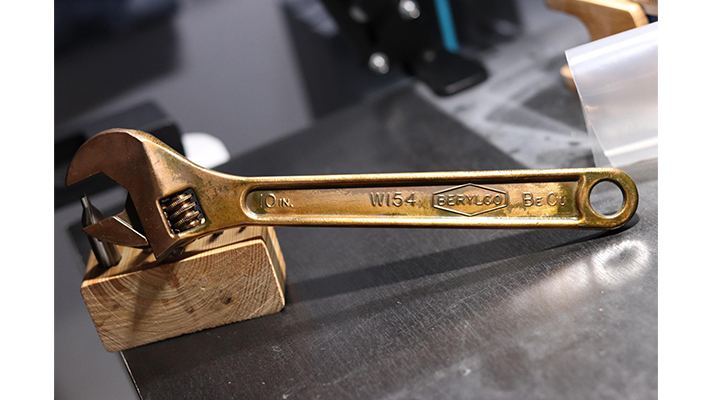
Image source: Reddit user parth096's post
By Manufacturing Process
· Casting: A more economical option, but with lower density and shorter service life. Cast tools may also contain small pores that reduce strength.
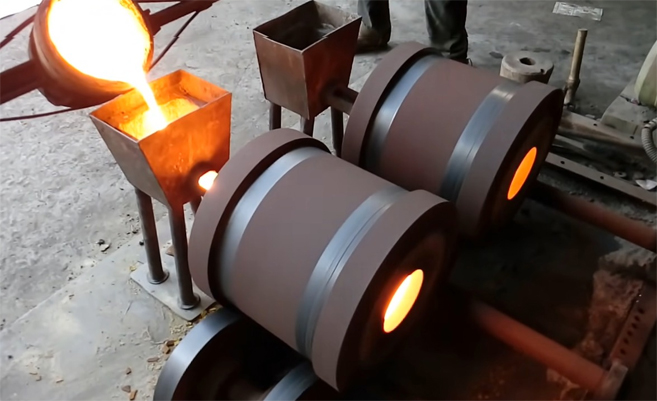
Image source: Centrifugal Casting – Definition, Process, Types and Applications
· Forging: Forged tools are compressed under high pressure, increasing density and mechanical strength. They typically last twice as long as cast tools, making forged explosion-proof hand tools ideal for heavy-duty industrial applications.
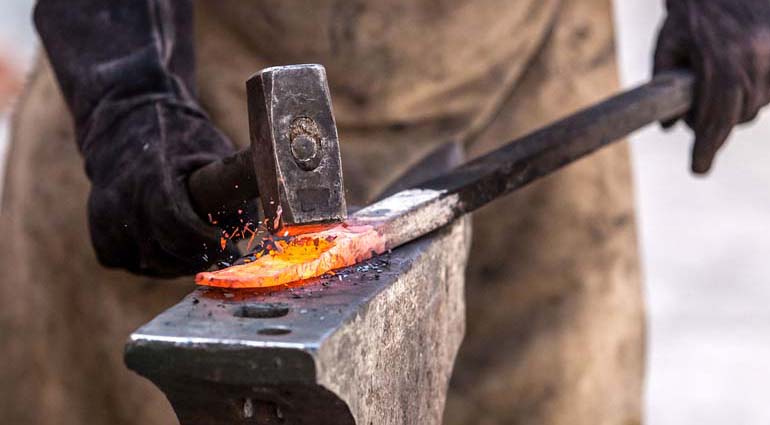
Image source: What is Steel Forging? | SteelAvailable.com
Applications of Explosion-Proof Tools
High-Risk Industries
Explosion-proof tools are indispensable in sectors where flammable and explosive materials are present, such as:
· Petrochemical plants
· Coal mines
· Natural gas facilities
Using non-sparking tools for oil, gas, and chemical facilities reduces the risk of accidental ignition.
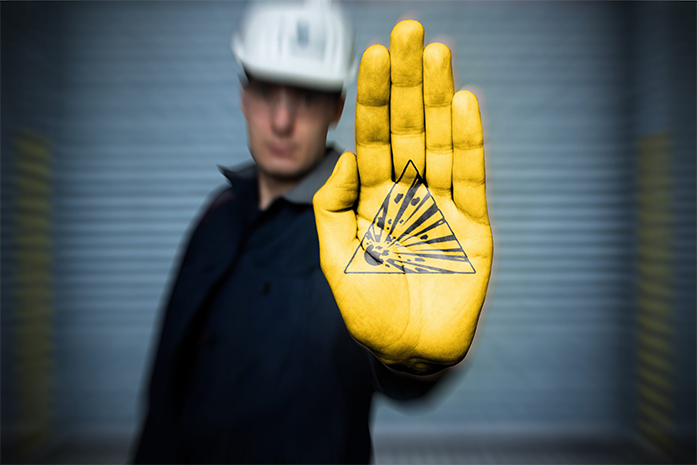
Image source: Explosionsschutz – Explosion im Unternehmen verhindern
Special Requirements
· Magnetic Fields: In electrolytic workshops or laboratories, non-magnetic beryllium copper tools are essential.
· Corrosive Environments: Tools must be corrosion-resistant and treated to prevent rust, ensuring a longer service life. Corrosion-resistant non-sparking tools are critical for long-term industrial use.
Usage and Maintenance Guidelines
Operating Requirements
· Avoid applying excessive force, such as extending lever arms or using tools outside their intended function.
· After 20 consecutive strikes, clean debris from the tool and allow it to cool.
Maintenance Practices
· Clean tools after every use and store them in a dry environment.
· Regularly inspect for cracks, deformation, or wear.
· Send damaged tools to the manufacturer for professional repair.
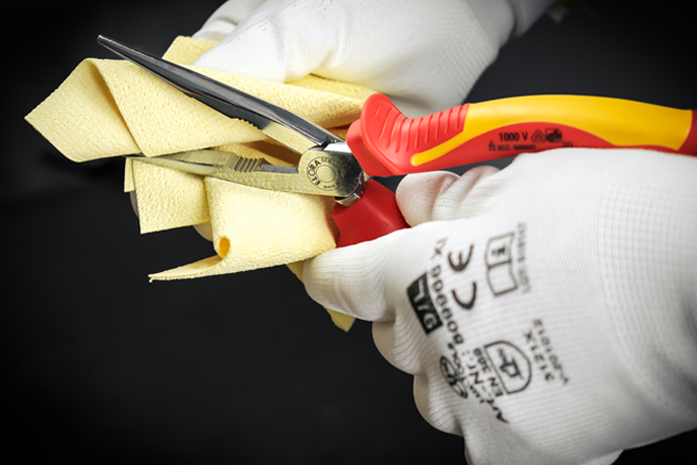
Image source: Hand tool care and maintenance: tips for long-lasting quality
How to Choose the Right Spark-Resistant Tools
When selecting explosion-proof tools, consider the following factors:
· Risk Level: For hydrogen-rich, high-risk environments, choose beryllium copper tools. For medium-risk settings, aluminum bronze tools are sufficient.
· Frequency of Use: Forged tools are recommended for heavy-duty operations due to their enhanced durability.
· Special Needs: Non-magnetic or corrosion-resistant options may be required in specific environments.
· Budget: Although beryllium copper is more expensive, the safety benefits often outweigh the cost. Selecting the right non-sparking hand tools for industrial safety is an investment in workplace protection.
Conclusion
Explosion-proof tools are designed with copper alloys and advanced engineering principles to eliminate sparks and ensure safety in hazardous environments. From material selection to certification testing, every step is standardized to guarantee workplace safety.
For industries operating in dangerous conditions, choosing the right explosion-proof tools and following strict operating guidelines can significantly reduce risks. Shandong Dawei Metal Materials Co., Ltd. provides a full range of aluminum bronze and beryllium copper explosion-proof hand tools, including non-sparking wrenches, pliers, and specialty tools for hazardous workplaces. Whether you work in petrochemicals, mining, or natural gas, we deliver reliable solutions to safeguard your operations.

